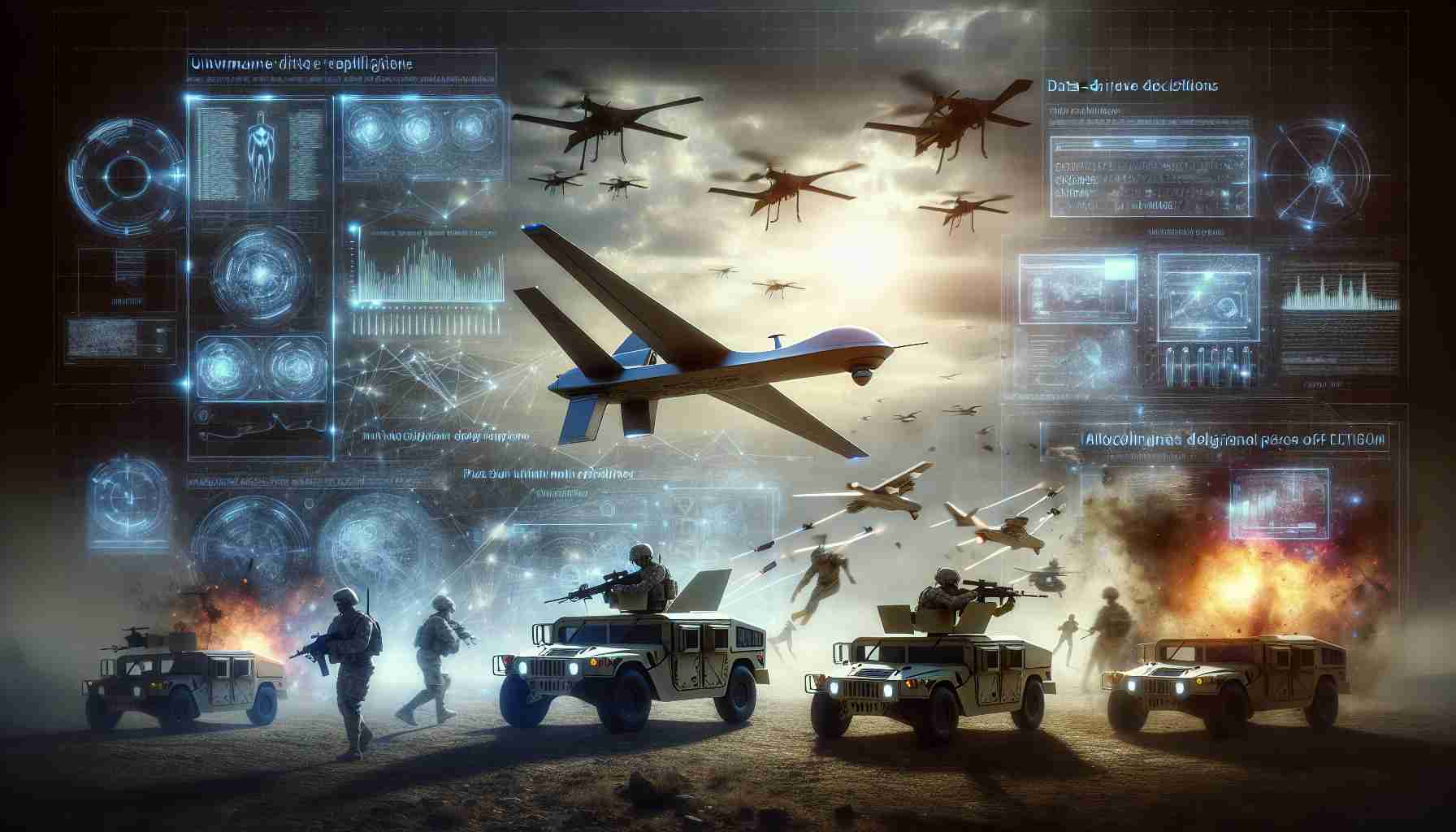Artificial intelligence (AI) is dramatically transforming the landscape of modern warfare. The Israeli Defense Forces (IDF) have developed cutting-edge systems designed to prioritize the evacuation of wounded soldiers from the battlefield, minimize crossfire incidents, and assist in identifying key Hamas leaders or captives. The recent Gaza war has served as a significant testbed for these AI-powered technologies, resulting in remarkable achievements on the ground.
Through sophisticated algorithms and advanced data analysis, the IDF’s AI systems can swiftly analyze real-time data from various sources, including drones, surveillance cameras, and intelligence reports. This fusion of information enables commanders to make well-informed decisions promptly, ultimately ensuring the safety of their troops and enhancing operational effectiveness.
One of the primary applications of AI in warfare is its ability to prioritize the evacuation of wounded soldiers. By analyzing vital signs and assessing injury severity, AI systems can help medical teams determine the order in which casualties should be treated and evacuated. This ensures that critical cases receive immediate attention, increasing the chances of survival and recovery for those injured in combat.
Furthermore, AI technology plays a vital role in reducing crossfire incidents. By analyzing and predicting enemy movements, the IDF’s AI systems enable soldiers to navigate through complex and volatile environments more safely. This enhanced situational awareness reduces the risk of inadvertently firing upon friendly forces and minimizes civilian casualties, ultimately ensuring a more ethical approach to warfare.
In addition to these critical functions, AI also aids in the identification of high-value targets, such as Hamas leaders or captives. By analyzing vast amounts of intelligence data, including facial recognition, social media activity, and communication patterns, AI systems can provide invaluable assistance to intelligence agencies and frontline troops. This allows for more targeted operations, increasing the likelihood of successfully neutralizing key threats.
While AI has proven its worth on the battlefield, it is important to address concerns and potential ethical ramifications. As technology advances, questions surrounding the autonomy and decision-making power of AI systems arise. Striking the right balance between human control and AI assistance is crucial to ensure that military operations remain ethical and accountable.
Frequently Asked Questions:
What is artificial intelligence (AI)?
Artificial intelligence refers to the simulation of human intelligence in machines that are programmed to think and learn like humans. It involves the development of computer systems capable of performing tasks that typically require human intelligence, such as visual perception, speech recognition, decision-making, and problem-solving.
How does AI assist in modern warfare?
AI assists in modern warfare by analyzing vast amounts of real-time data, providing commanders with actionable insights and enhancing decision-making capabilities. It enables the prioritization of wounded soldiers for evacuation, reduces crossfire incidents, and aids in the identification of high-value targets.
What are the ethical considerations of AI in warfare?
As AI becomes more prevalent in warfare, ethical considerations arise. Questions surround the autonomy and accountability of AI systems, emphasizing the need for human oversight and control. Striking the right balance between AI assistance and human decision-making is crucial to ensure responsible and ethical military operations.
What sources were used for this article?
To provide a comprehensive analysis of AI in modern warfare, a combination of military journals, news articles, and expert opinions were consulted.
Sources:
– https://www.defense.gov/
– https://www.bbc.com/
Frequently Asked Questions:
What is artificial intelligence (AI)?
Artificial intelligence refers to the simulation of human intelligence in machines that are programmed to think and learn like humans. It involves the development of computer systems capable of performing tasks that typically require human intelligence, such as visual perception, speech recognition, decision-making, and problem-solving.
How does AI assist in modern warfare?
AI assists in modern warfare by analyzing vast amounts of real-time data, providing commanders with actionable insights and enhancing decision-making capabilities. It enables the prioritization of wounded soldiers for evacuation, reduces crossfire incidents, and aids in the identification of high-value targets.
What are the ethical considerations of AI in warfare?
As AI becomes more prevalent in warfare, ethical considerations arise. Questions surround the autonomy and accountability of AI systems, emphasizing the need for human oversight and control. Striking the right balance between AI assistance and human decision-making is crucial to ensure responsible and ethical military operations.
What sources were used for this article?
To provide a comprehensive analysis of AI in modern warfare, a combination of military journals, news articles, and expert opinions were consulted.
Sources:
– Defense.gov
– BBC News
The source of the article is from the blog dk1250.com

